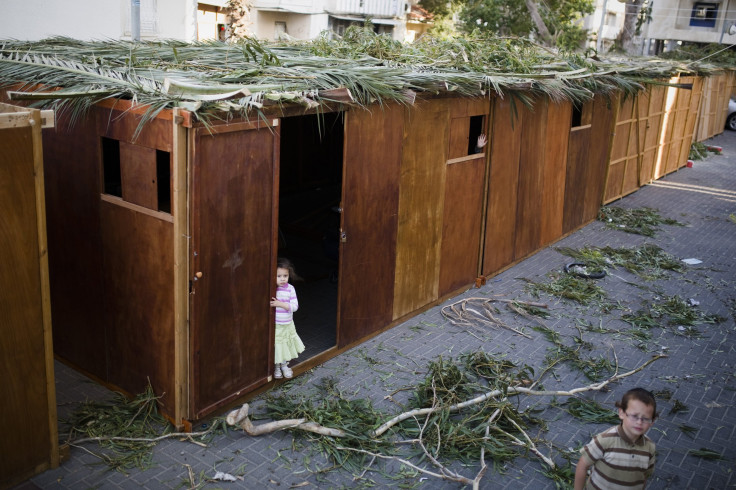Sukkot 2020: Prayers And Blessings In English For 'Feast Of Booths'
The Jewish holiday Sukkot begins Friday and ends Oct. 9. The week-long celebration is also known as the "Feast of Booths", or the "Feast of Tabernacles".
The holiday is a harvest celebration and "commemorates the miraculous protection G‑d provided for the children of Israel when they left Egypt," according to Chabad.org. It falls on the 15th day of Tishrei in the Jewish calendar. The festival is celebrated by building a sukkah as a temporary dwelling.
To wish someone during Sukkot in Hebrew you need to say “Chag Sameach” which means happy holiday. You can also say “Moadim l’simcha” which refers to a joyous festive occasion. To respond to this you can say “Chagim u’zmanim l’sasson”, which translates to “holidays and seasons for rejoicing.”
Some of the typical Hebrew prayers have been translated to English, courtesy Jewfaq.org and Reform Judaism:
To be said before a meal in the sukkah: “Praised are You, Adonai our God, Sovereign of the Universe, Who has made us holy by mitzvot and has instructed us to dwell in the sukkah.”
To be said before wine is consumed: “Blessed are You, Adonai our God, Sovereign of the Universe, Who creates the fruit of the vine.”
To be said after candles are lit: “Blessed are You, Adonai our God, Sovereign of the Universe Who makes us holy with Your mitzvot and commands us to kindle the lights of the Sabbath and the holiday.”
To be said before the lulav and etrog are waved: “Praised are You, Adonai our God, Sovereign of the Universe, Who has made us holy by mitzvot and has instructed us to take hold of the lulav.”
To be said as a farewell to the sukkah: “May it be Your will, Lord, our God and God of our ancestors, that just as I have stood up and dwelled in this sukkah, so may I merit next year to dwell in the sukkah of the hide of the Leviathan. Next year in Jerusalem!”

© Copyright IBTimes 2024. All rights reserved.





















